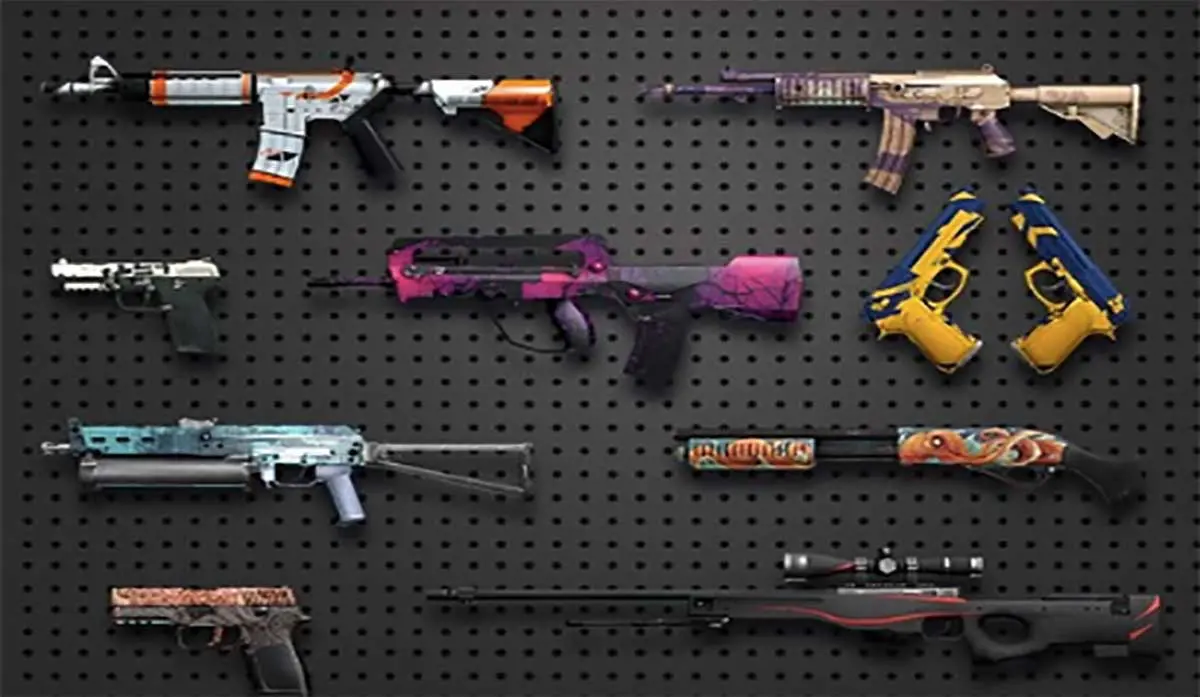
The UK Gambling Commission is expected to release a report on Tuesday, revealing about half a million children and young people gamble every week.
But the products they are gambling on aren’t blackjack or poker. Instead, they are betting on skins.
Skin betting has been on the UKGC’s radar for some time now, which the regulator believes is more problematic than loot boxes in video games.
Skins betting sites allow players to gamble with virtual items, such as guns or knives, you can win in video games for real money.
A few weeks ago loot boxes in video games, which are randomised items you can purchase in games, made headlines as the Belgian Gaming Commission said they count as a form of gambling.
While other regulators around the world agreed, the UKGC said loot boxes do not meet the definition of gambling since you cannot exchange them for real money.
The UK gambling regulator did note that skin betting counts as gambling, identifying several sites where players can trade and sell skins, as well as gamble them for the chance to win better ones.
Critics argue skins betting is a form of unlicensed gambling since players can exchange them for real money.
“Because of these unlicensed skin betting sites, the safeguards that exist are not being applied and we’re seeing examples of really young people, 11 and 12-year-olds, who are getting involved in skin betting, not realising that it’s gambling,” UKGC CEO, Sarah Harrison, said.
“At one level they are running up bills perhaps on their parents’ PayPal account or credit card, but the wider effect is the introduction and normalisation of this kind of gambling among children and young people.”
In an unprecedented move, the UKGC prosecuted owners of an unlicensed gambling website connected to a video game earlier this year.
The two owners were fined £91,000 and £164,000 under the UK’s Gambling Act for the FUT Galaxy website which allowed players to gamble virtual currency connected to the FIFA video game.
Harrison said the UKGC looked into taking criminal action, but limitations prevented it from proceeding. She added that many sites are out of the regulator’s jurisdiction, too.
The BBC spoke to one young man who began skin betting when he was 15, resulting in a loss of around £2000 in the four years that have followed.
“I’d get my student loan, some people spend it on expensive clothes, I spend it on gambling virtual items,” Ryan Archer told the BBC.
“There have been points where I could struggle to buy food because this takes priority.”
Archer said he would gamble on unlicensed websites to try and raise money to buy skins that he could not afford.
“It’s hard to ask your parents for £1,000 to buy a knife on CSGO (Counter Strike: Global Offensive), it’s a lot easier to ask for a tenner and then try and turn that into £1,000,” he said.
Players can exchange real money for skins (modified weapons) in CS:GO, and there are several gambling sites connected to the game.
“You wouldn’t see an 11-year-old go into a betting shop, but you can with this, there’s nothing to stop you,” Archer added.
The report will be published by the Office for National Statistics on Tuesday.
Skin betting sites vs licensed gambling sites
Online betting sites accept wagers on esports. The difference is these sites offer properly regulated markets where you bet on the outcome of esports tournaments, not gamble for upgraded digital weapons. They’re also licensed by gambling regulators which ensure the bookmakers have the appropriate responsible gambling measures in place, including preventing minors from gambling. We recommend checking out William Hill for a great selection of esports betting markets if you’re over 18.